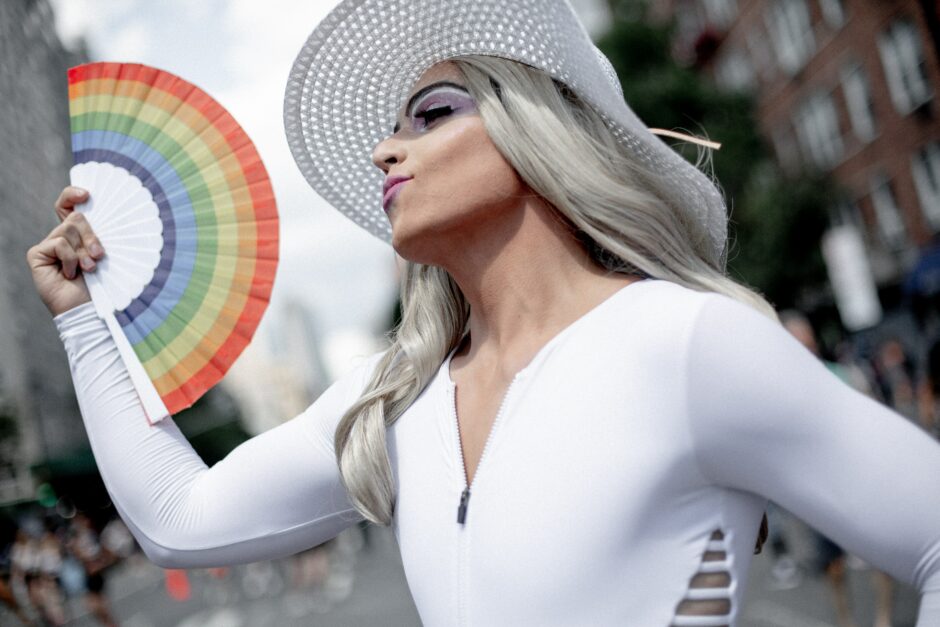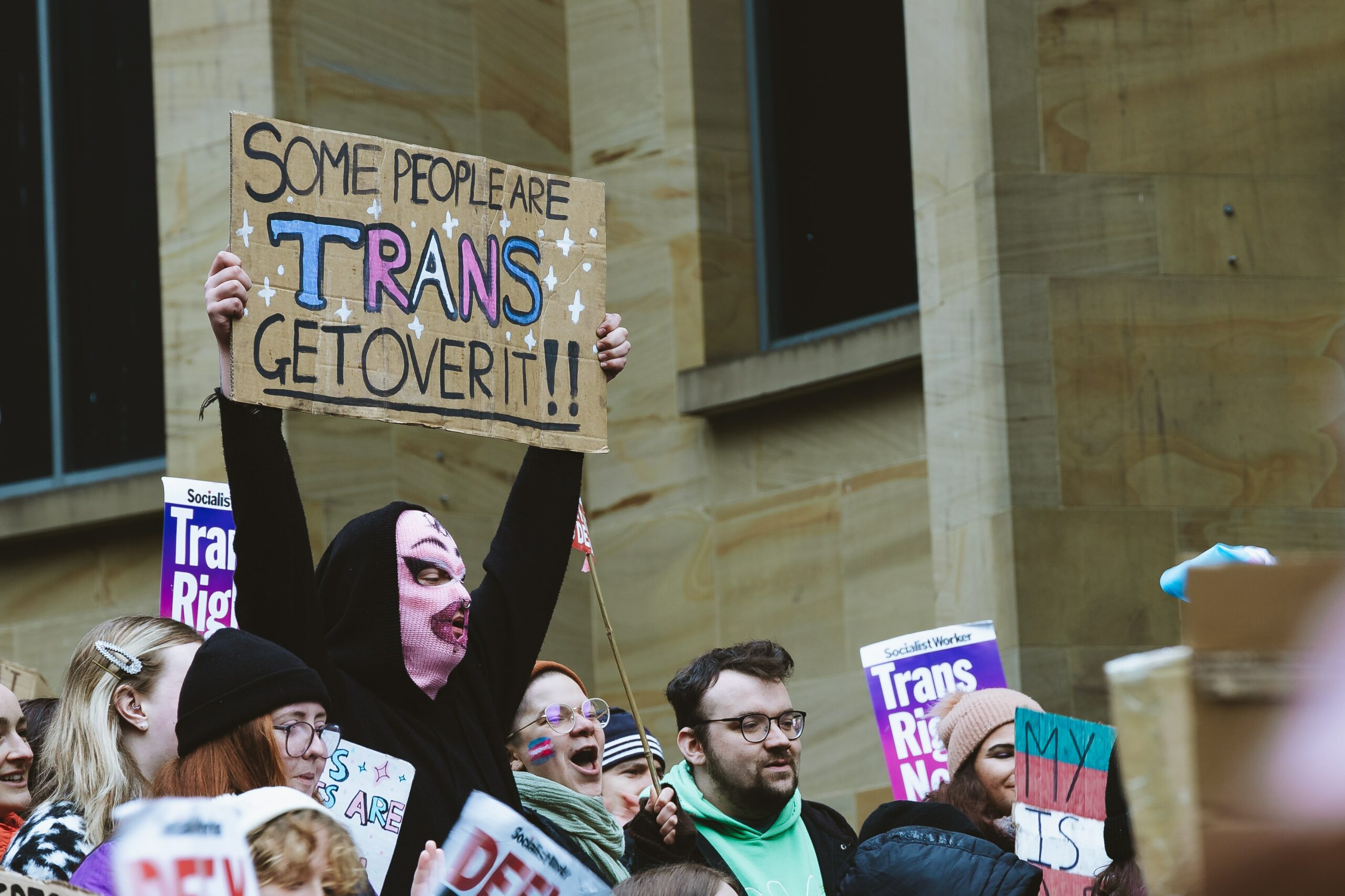In the “land of the free”, protests and law proposals against love and free self-expression are increasing drastically and fast. The protesters claim that they seek to protect their children against this diversity because, paradoxically, this personal freedom to be whomever you are is, supposedly, dangerous. Really, what could be more dangerous to children than a dress-up person with makeup on, dancing and singing? We are talking about drag performers.
During the last year in the U.S., anti-LGBTQ+ protests rose by 340 per cent. This means that there was an anti-LGBTQ+ or anti-drag attack or protest every 2,5 days spanning all but three states during 2022. These protests tend to become violent, like the vandalization of a donut shop that hosted a drag event, the armed threat against a children’s drag story hour, and the deadly shooting at an LGBTQ+ club hosting a drag show. However, this development is not unique to the U.S. either, as incidences have also been reported in the UK and Hungary. The protests in the U.S. have also been translated into policy proposals or laws to ban drag performances in at least 15 states. In Texas, which also experienced the highest number of anti-drag attacks, the proposed bill seeks to categorize drag performances as a “sexually oriented business”, just like strip clubs. One such bill restricting drag performance has now been passed in Tennessee, alongside a ban on gender-transition health care for young transgender people and a requirement for all minors in current gender-transition care to detransition within a year. This ban followed a similar ban on healthcare for transgender children and teens that was also implemented in Utah – possibly just the start of a long list of bans throughout the states. Common for all the proposals is their justification based on protecting children and minors. For example, the policy proposal in Arizona suggests banning minors from attending drag events. This proposal follows a series of anti-LGBTQ+ policy proposals and implementations in Arizona, like requiring public schools to organize sports teams based on “biological sex”, making gender reassignment surgery for minors illegal, and banning teachers from using a student’s preferred name and pronouns without parental permission. Therefore, the queer and drag community in the traditionally conservative state of Arizona protested and decided to head to the Arizona Capitol this January.

“I’m mad, and I’m tired with these proposals” one of the organizers of the movement and protest in Arizona; Noelle Cañez, or “Daddy Satan”, told Utblick Magazine. “There are so many real problems we could all be spending time to work on and fix, like the horrible amount of unhoused neighbors in Arizona, or how we are amongst the worst ranked for education, to start with. But here we are making up problems just because it’s what’s trending on Fox News”. Indeed, a quick search for “drag” on foxnews.com reveals over 13,000 articles from the beginning of 2022 until today. In a video and article from last October, Fox News reporter Tucker Carlson refers to a drag event open to minors as a “moral crime” as it “sexualized children” with its “sexually suggestive dance” and “creepy sex stuff”. Guest on the show, journalist Sara Gonzales, then goes on to describe the event as “sexual abuse of children”. She then claims that these drag events are a way for the left to radicalize the country through chaos and confusion to make people surrender to the “big daddy government”. Cañez, on the other hand, urges people making such justifications to instead look at the statistics of child abuse. “What drag artist has ever been accused of inappropriate behavior with a kid? Especially compared to the Boy Scouts of America, the Baptist Church, or any church for that matter. […] When they point the finger at us, they have three more pointing at themselves”.
Actually, looking into the statistics reveals that over 77% of sexual abuse of children in the U.S. involves a parent as the perpetrator, and almost 11% involves a perpetrator who is a relative or has other close relationships with the child. The cited report on child maltreatment further lists several risk factors, like alcohol and drug abuse, and domestic violence. Solely being a drag performer, or part of the LGBTQ+ community at large is not listed as a risk factor. However, inadequate housing is listed, which is also one of the problems that Cañez pointed out as a more important issue in Arizona. Indeed, Cañez does not think that the anti-drag movement is actually about the hate for queer culture or drag performers. Instead, she argues that the conflict is constructed around the tension about homophobia. “The politicians are trying to keep their voter base active and mad about something, so when it comes time to vote they’ll be there. But in reality, it’s causing hate and violence, which is inexcusable”.
Whether or not the law proposals are justified in protecting children or for creating political engagement, the consequences are felt by real people. There is uncertainty about how the law will act out when it becomes reality. While drag performers and transgender people are not necessarily the same people, concept, or have the same experience, the transphobia inherent in such anti-drag bills see them as the same: someone crossdressing. Consequently, anti-drag bills can translate into anti-trans bills. Would it become illegal for transgender or gender non-conforming people to dress according to their identity? Would everyone be legally obliged to dress according to gender roles of the sex assigned at birth? This is part of the fear following the drag ban in Tennessee; the ban on drag performances can effectively ban transgender people from participating in Pride parades. In Arkansas, it might soon become a crime for transgender people to use a public bathroom if a minor is present. For Cañez and the participants in her protest, a law proposal limiting your choice in dressing yourself, exist in public, and performing does nevertheless not feel like the freedom that the law proposes that it protects. “I’m tired of having my rights threatened while living in ‘the freest country in the world’, why is freedom only for my straight white religious counterparts?”






